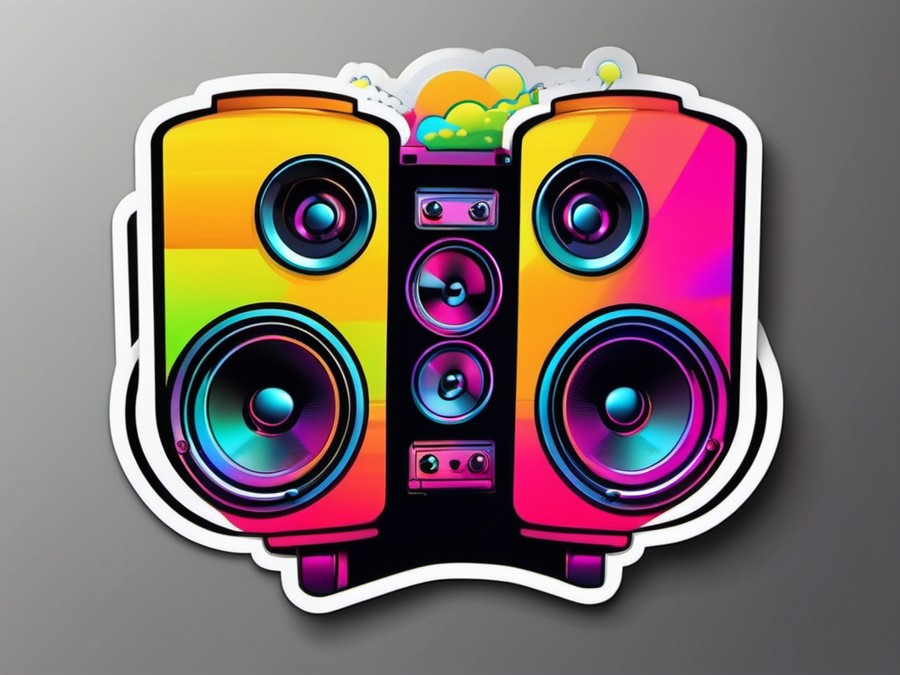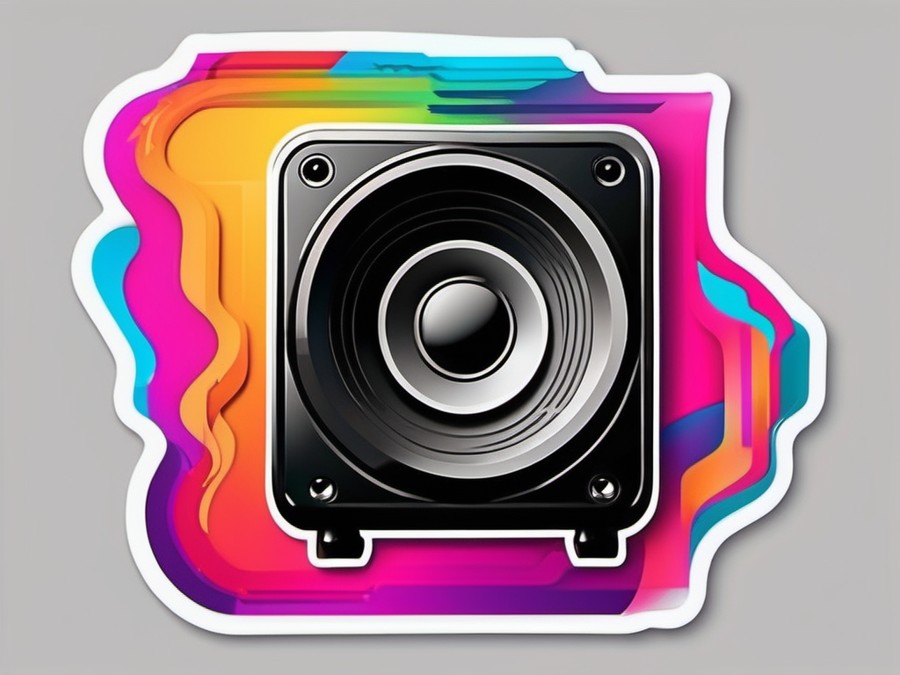· Charlotte Will · Portable Line-In Speakers · 6 min read
What is the difference between portable line-in speakers and Bluetooth speakers?
Discover the key differences between portable line-in speakers and Bluetooth speakers, including audio quality, battery life, connectivity options, and practical use cases. Make an informed decision based on your specific needs and preferences.

Introduction
When it comes to portable speakers, the choice between line-in and Bluetooth options can be a bit perplexing. Both have their unique advantages, but which one is right for you? Let’s dive into the nitty-gritty details to help you make an informed decision.
Understanding Portable Line-In Speakers
Portable line-in speakers are a great choice for those who prioritize audio quality and want to use their own devices without the hassle of Bluetooth pairing.
How Line-In Speakers Work
Line-in speakers use a standard 3.5mm audio jack to connect directly to your device, whether it’s a smartphone, tablet, or even an MP3 player. This direct connection ensures a steady audio stream without any wireless interference.
Advantages of Line-In Speakers
- Superior Audio Quality: Direct connection from your device to the speaker means there’s no compression or digital interference.
- No Battery Drain: Since they don’t require Bluetooth, line-in speakers won’t drain your device’s battery.
- Compatibility: Works with almost any audio output-enabled device, including older models that don’t support Bluetooth.
Disadvantages of Line-In Speakers
- Wired Connection: The need for a physical cable can be limiting if you want to move around or place the speaker far from your device.
- Less Portable: You need to carry around an extra cable, which can be a hassle.
Diving into Portable Bluetooth Speakers
Portable Bluetooth speakers are the modern choice, offering wireless convenience and versatility.
How Bluetooth Speakers Work
Bluetooth speakers connect wirelessly to your device using Bluetooth technology. This allows for a cable-free experience and the ability to place the speaker anywhere within range.
Advantages of Bluetooth Speakers
- Wireless Freedom: Move around freely without being tethered to a cable.
- Easy Pairing: Most modern devices support Bluetooth, making it easy to connect and switch between different audio sources.
- Portability: No need to carry extra cables, making Bluetooth speakers highly portable.
Disadvantages of Bluetooth Speakers
- Battery Depletion: Both the speaker and your device will use battery power, which can be a concern for long listening sessions.
- Audio Quality: Bluetooth compression can sometimes affect the quality of your sound, though this is less of an issue with newer Bluetooth versions.
- Compatibility Issues: Older devices that don’t support Bluetooth won’t be able to use these speakers.
Key Differences Between Line-In and Bluetooth Speakers
When deciding between line-in and Bluetooth speakers, consider these crucial differences.
Audio Quality
Line-in speakers generally offer better audio quality due to the lack of digital compression. Bluetooth speakers, especially older models, might suffer from slight degradation in sound quality.
Battery Life
Line-in speakers don’t rely on your device’s battery, making them a better choice for extended listening sessions. Bluetooth speakers, on the other hand, can drain both your device and their own battery faster.
Connectivity Range
Bluetooth speakers offer the advantage of being able to place them anywhere within range, usually up to 30 feet. Line-in speakers require a direct connection and thus can be more limited in terms of placement.
Ease of Use
Bluetooth speakers are generally considered more convenient for modern users due to their wireless nature and easy pairing. Line-in speakers, while offering superior sound quality, may be seen as less convenient by some.
Compatibility
Line-in speakers work with almost any device that has a 3.5mm audio jack, making them highly versatile. Bluetooth speakers are limited to devices that support Bluetooth connectivity.
Practical Scenarios for Each Type
Let’s explore when you might choose one type over the other.
When to Choose Line-In Speakers
- Home Entertainment: If you’re setting up a home entertainment system and want the best possible sound quality without wireless interference, line-in speakers are ideal.
- Long Listening Sessions: When you need to listen for extended periods without worrying about battery life, line-in speakers are the way to go.
- Compatibility with Older Devices: If you have older devices that don’t support Bluetooth but still want good sound quality, line-in speakers are a great option.
When to Choose Bluetooth Speakers
- On-the-Go Listening: Ideal for outdoor activities or situations where you need to move around without being tied down by a cable, Bluetooth speakers are perfect.
- Modern Devices: If your primary devices are modern smartphones, tablets, or laptops that support Bluetooth, Bluetooth speakers offer a convenient solution.
- Multi-Device Use: When you want the convenience of easily switching between different audio sources without having to unplug and replug cables, Bluetooth speakers are a great choice.
Comparison to Other Speaker Types
To further understand the context, let’s compare portable Bluetooth and line-in speakers to other common speaker types.
Wireless Multiroom Systems vs Traditional Speakers
Wireless multiroom systems, as discussed in our article What is the Difference Between Wireless Multiroom Systems and Traditional Speakers?, offer the ability to play music in multiple rooms simultaneously. This is something that neither Bluetooth nor line-in speakers can do on their own without additional setup.
Bookshelf Speakers vs Floor-Standing Speakers
Our article What is the Difference Between Bookshelf Speakers and Floor-Standing Speakers? explores the differences between these types of speakers. While portable Bluetooth and line-in speakers have their place in portability, bookshelf and floor-standing speakers are designed for more permanent home audio setups.
Satellite Speakers vs Subwoofers
Satellite speakers, as discussed in What is the Difference Between Satellite Speakers and Subwoofers?, are designed for higher frequencies, whereas subwoofers focus on the lower end. Portable speakers generally cover a broader range but might not excel in very high or low frequencies like specialized systems.
Center-Channel Speakers
Center-channel speakers, as described in What is the Difference Between a Center-Channel Speaker and Other Speakers?, are crucial for home theater setups. Portable speakers, whether Bluetooth or line-in, typically don’t serve this specific purpose.
In-Wall and In-Ceiling Speakers
Our article What is the Difference Between In-Wall and In-Ceiling Speakers? discusses the differences between these types of speakers. They are designed for integrated home audio systems and, unlike portable speakers, require professional installation.
Marine Speakers
Marine speakers, as explored in What is the Difference Between Marine and Regular Speakers?, are built to withstand harsh environments like boats or pools. Portable speakers might not stand up to this kind of use, but Bluetooth waterproof options can be found for outdoor use.
Best Portable Waterproof Bluetooth Speakers
For those interested in waterproof options, our article What is the Best Waterproof Portable Bluetooth Speaker? delves into the best choices for durable, outdoor use.
Conclusion
Both portable line-in speakers and Bluetooth speakers have their pros and cons, depending on your specific needs. If audio quality is paramount and you don’t mind a wired connection, line-in speakers are the way to go. For those who prioritize convenience and wireless freedom, Bluetooth speakers offer a modern solution with plenty of perks.
FAQs
Is it possible to use a line-in speaker with a Bluetooth device? Yes, you can use a 3.5mm to Bluetooth adapter or convert your line-in speaker into a Bluetooth-enabled device.
Which type of portable speaker is best for outdoor parties? Bluetooth speakers are typically better suited for outdoor parties due to their wireless nature and the ability to place them anywhere within range.
Do I need a special cable for line-in speakers? No, standard 3.5mm audio cables work with line-in speakers. Just ensure your device has a 3.5mm audio jack or use an adapter if it doesn’t.
Can I connect multiple devices to a Bluetooth speaker at once? Most Bluetooth speakers allow you to pair with multiple devices, but usually only one device can be actively connected and playing music at a time.
How do I ensure the best possible audio quality with Bluetooth speakers? Using a Bluetooth speaker that supports the latest Bluetooth versions (e.g., Bluetooth 5.0) can help minimize audio compression and ensure better sound quality.




